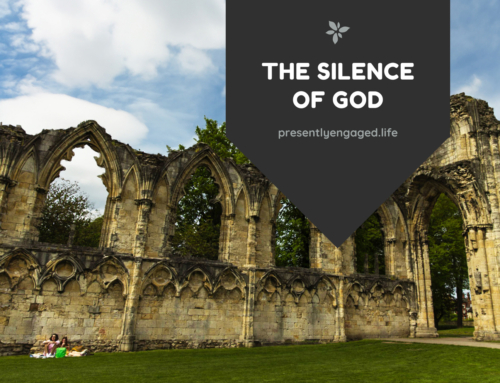“The cattle are lowing, The baby awakes. But little Lord Jesus, no crying He makes.”
“We three kings of Orient are. Bearing gifts, we traverse afar”
“God rest ye merry gentlemen let nothing you dismay! Remember Christ our Savior was born on Christmas Day.”
This season is filled to overflowing with smiles, happiness, and clichés. I’ve been pondering lately all the things that we don’t actually know about Christmas, the Christmas story, and the precious narrative that we celebrate this time of year. Each carol brings a mental image, each painting or sketch illustrates a perception. The Christmas story is full of things that we actually don’t know, many of which pop up as treasured clichés in picture, print, or song.
We don’t know if Mary rode on a donkey, or if there even was a donkey. (For that matter, first century Middle-Eastern customs being what they were, is it possible that Joseph would have been the one riding?)
We don’t know if there was an innkeeper.
We don’t know if Jesus was born in a stable, or a barn, a roadside corner, or a relatives’ house, overflowing with visitors for the census. We simply read, “There was no place for them in the inn.” In Bethlehem, stone mangers can be found in common areas, courtyards, caves and stables. Where would a homeless couple from another town go when birth pangs arrived?
We don’t know on what day Jesus was born.
We don’t know if Mary and Joseph were alone, or surrounded by strangers.
We don’t know if there were three wise men, or thirteen.
But with all these unknowns, there are great and precious things we do know:
We know that the Word was made flesh and dwelt among us (John 1:14).
We know that in Him all the fullness of the deity dwelt bodily (Colossians 2:9).
We know that God was in control of every thing, whether known or unknown.
We know that the angel of the Lord visibly appeared to shepherds, stunning them with good news of great joy.
We know that a multitude of the heavenly host praised God proclaiming “Glory to God in the highest, and on earth peace among those with whom he is pleased” (Luke 2:14)
We know that the shepherds were the first missionaries, the first humans to proclaim the good news of great joy.
We know that the arrival of a tiny baby in the city of David was the fulfillment of promise and the pinnacle of prophecy. That this child born would be called Wonderful Counselor, Mighty God, Everlasting Father, Prince of Peace (Isaiah 9:6).
We know that the Christmas story is all about the beautiful, wonderful, magnificent fact that God sent His Son, born of woman, born under the law, to redeem those who were under the law, so that we might be adopted into His family (Galatians 4:4).
We know that Mary treasured up all these things that happened to and around and through her and pondered them in her heart (Luke 2:19).
This season, may you treasure up all these things, and ponder them in your heart. Treasure the truth of the Word made flesh. Ponder the incarnation. Rejoice in this good news of great joy. Because we know Jesus.
And those classic Christmas carols? Sing them loud. They got a lot right, those singer-songwriters of old:
“Bless all the dear children in Thy tender care. And take us to Heaven to live with Thee there.”
“Born a King on Bethlehem’s plain, gold I bring to crown him again.
King for ever, ceasing never—over us all to reign.”
“Fear not then, said the Angel, let nothing you affright
This day is born a Savior of a pure Virgin bright
To free all those who trust in Him from Satan’s pow’r and might
Oh tidings of comfort and joy, comfort and joy
Oh tidings of comfort and joy!”
That man should be made in God’s image was a wonder, but that God should be made in man’s image is a greater wonder. That the Ancient of Days should be born, that he who thunders in the heavens should cry in the cradle…that he who rules the stars should suck the breast; that a virgin should conceive; that Christ should be made of a woman, and of that woman which himself made; that the branch should bear the vine; that the mother should be younger than the child she bare, and the child in the womb bigger than the mother; that the human nature should not be God, yet one with God; this was not only mirum but miraculum. Christ taking flesh is a mystery we shall never fully understand till we come to heaven, when our light shall be clear, as well as our love perfect.
—Thomas Watson






